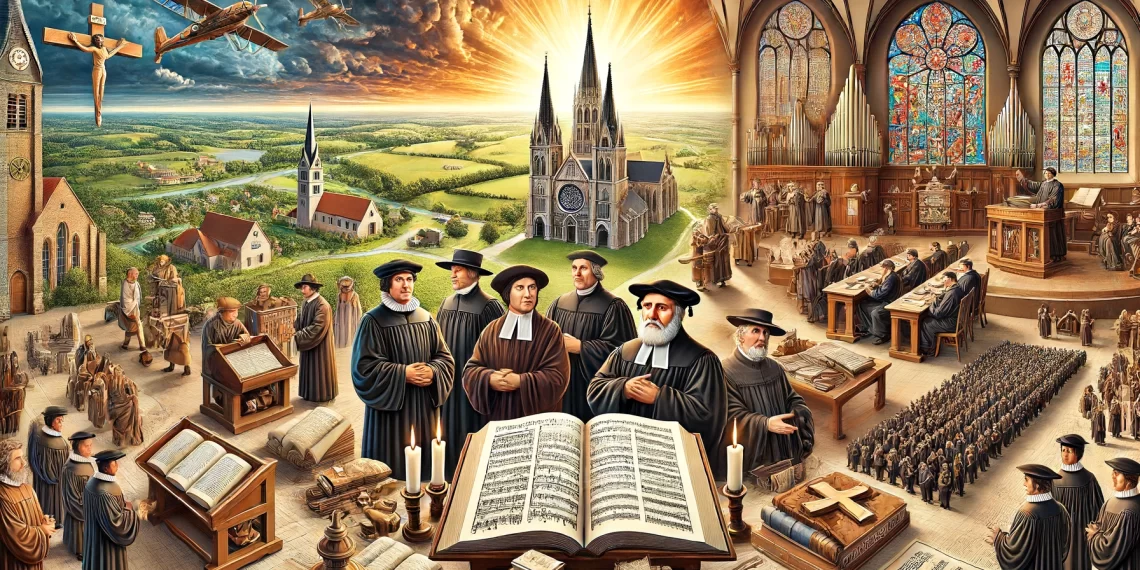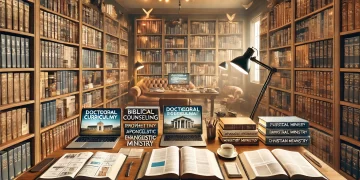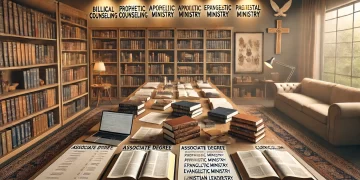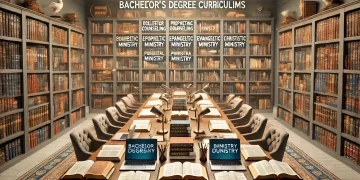Views: 0
Title: HIS 602: Reformation and Modern Church Movements
Subtitle: The Impact of Reformation and Contemporary Church Movements
Course Name & Level: Reformation and Modern Church Movements, Master Degree
Number of Credit Hours: 3 credit hours
Keywords: Reformation, Modern Church, Church Movements
1. Introduction:
This course examines the historical development and impact of the Reformation and modern church movements. Students will explore key figures, events, and theological shifts that have shaped the contemporary church.
2. Course Description:
An advanced course focusing on the history and development of the Reformation and modern church movements. Emphasis is placed on understanding the historical context, significant events, influential leaders, and theological developments that have shaped the church from the Reformation to the present day.
3. Course Purpose:
To provide students with a comprehensive understanding of the Reformation and modern church movements, enhancing their ability to appreciate and engage with contemporary Christian thought and practice.
4. Course Objectives:
To explore and analyze the key events, figures, and theological developments in the Reformation and modern church movements, understanding their significance for contemporary Christian life and ministry.
5. Key Terms Defined & Key Concepts Explained:
- Reformation: A 16th-century movement for the reform of abuses in the Roman Catholic Church, leading to the establishment of Protestant churches.
- Protestantism: The faith, practice, and church order of the Protestant churches.
- Counter-Reformation: The period of Catholic revival initiated in response to the Protestant Reformation.
- Evangelicalism: A modern Protestant movement emphasizing the authority of Scripture, personal faith in Jesus Christ, and the necessity of evangelism.
- Pentecostalism: A modern Christian movement emphasizing the work of the Holy Spirit, spiritual gifts, and charismatic worship.
6. Specific Topics with Descriptions:
- Introduction to the Reformation: Overview of the course and its objectives.
- Historical Context of the Reformation: Examination of the social, political, and religious conditions leading up to the Reformation.
- Martin Luther and the 95 Theses: Study of Martin Luther’s role in initiating the Reformation and his key teachings.
- John Calvin and Reformed Theology: Exploration of John Calvin’s contributions to Reformed theology and church practice.
- The English Reformation: Analysis of the Reformation in England and the establishment of the Anglican Church.
- Anabaptists and Radical Reformers: Study of the Radical Reformation and the Anabaptist movement.
- The Counter-Reformation: Examination of the Catholic Church’s response to the Reformation, including the Council of Trent.
- The Rise of Evangelicalism: Exploration of the origins and development of the Evangelical movement.
- Pentecostal and Charismatic Movements: Study of the origins, beliefs, and impact of Pentecostalism and the Charismatic movement.
- Ecumenism and Church Unity: Examination of efforts towards Christian unity in the modern era.
- Theological Developments in Modern Christianity: Exploration of key theological trends and debates in contemporary Christianity.
- Global Christianity: Study of the growth and development of Christianity in the Global South and its impact on the global church.
7. Assessments with Descriptions:
- Quizzes: Regular quizzes to test knowledge of key events, figures, and theological developments in the Reformation and modern church movements.
- Reflection Papers: Written reflections on personal insights and learnings from specific topics.
- Research Paper: An in-depth research paper on a chosen aspect of the Reformation or modern church movements.
- Midterm Exam: An exam covering the first half of the course material.
- Final Exam: Comprehensive exam covering the entire course.
- Participation: Active participation in class discussions and group activities.
- Presentation: A presentation on a significant aspect of the Reformation or modern church movements.
8. Research References:
- The Reformation: A History by Diarmaid MacCulloch. eBook format. MLA Citation: MacCulloch, Diarmaid. The Reformation: A History. Penguin Books, 2005.
- Calvin: Institutes of the Christian Religion by John Calvin. eBook format. MLA Citation: Calvin, John. Institutes of the Christian Religion. Westminster John Knox Press, 1960.
- The Radical Reformation by George H. Williams. eBook format. MLA Citation: Williams, George H. The Radical Reformation. Truman State University Press, 1992.
- The Rise of Evangelicalism: The Age of Edwards, Whitefield, and the Wesleys by Mark A. Noll. eBook format. MLA Citation: Noll, Mark A. The Rise of Evangelicalism: The Age of Edwards, Whitefield, and the Wesleys. IVP Academic, 2003.
- Global Pentecostalism: The New Face of Christian Social Engagement by Donald E. Miller and Tetsunao Yamamori. eBook format. MLA Citation: Miller, Donald E., and Tetsunao Yamamori. Global Pentecostalism: The New Face of Christian Social Engagement. University of California Press, 2007.
This comprehensive curriculum ensures that students gain a deep understanding of the Reformation and modern church movements, focusing on King Jesus, His Kingdom, and His Great Commission.










